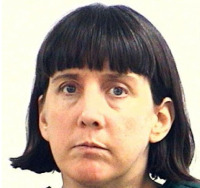Alexander Haig, a longtime Media Nation favorite, has died at the age of 85. My high regard for Haig is based on the three most famous incidents of his career. I can’t pretend to know what Haig was thinking, but my strong suspicion is that his contributions to the nation were never fully understood or appreciated.
First, as Richard Nixon’s chief of staff during the final days of Nixon’s presidency in 1974, Haig paved the way for Nixon’s peaceful departure from office — no sure thing at the time. There have been suggestions, never proven, that Haig was in on secret discussions with the Pentagon to disregard any orders from Nixon that could lead to a military coup or a nuclear strike. At the very least, Haig served as an honest broker between Nixon and then-vice president Gerald Ford, who may have promised a presidential pardon during this tense, dangerous period.
Second, Haig sacrificed his career as Ronald Reagan’s secretary of state by reassuring a jittery public following the attempt on Reagan’s life in 1981. Haig may not have realized it at the time, but his words before the television cameras — often misquoted as “I’m in charge” — were misinterpreted by his enemies (deliberately, I would argue) to make it sound as though he was attempting his own coup, superseding then-vice president George H.W. Bush. (Haig’s actual words: “As of now, I am in control here, at the White House.”) Haig deserves credit for stepping up at a moment when others were running around like Chicken Little. As it turned out, that moment effectively marked the end of Haig’s public service; he left office the following year.
Finally, and I say this at least partly tongue-in-cheek, Haig entered the 1988 Republican presidential primaries for the sole purpose of sparing the country from George H.W. Bush. Haig had to know he personally had no chance of winning. Thus my suspicion is that he hoped to do enough damage to Bush in order to steer the nomination to Bob Dole. Haig’s classic putdown of Bush in a 1987 debate — “I never heard a wimp out of you” — was aimed at playing off a famous Newsweek cover story about Bush headlined “Fighting the ‘Wimp Factor.'” And when Haig, inevitably, pulled out of the race, he endorsed Dole. Bush prevailed, of course. But Haig did what he could.




More on real names
By Dan Kennedy
On February 15, 2010
In Media
I just trashed two long, well-written comments from someone who thought he (she?) was entitled to post under a pseudonym. I wasn’t kidding, folks. And yes, I do understand that sometimes there are reasons for not posting under your real name. It’s just that you’re not going to be doing it here.